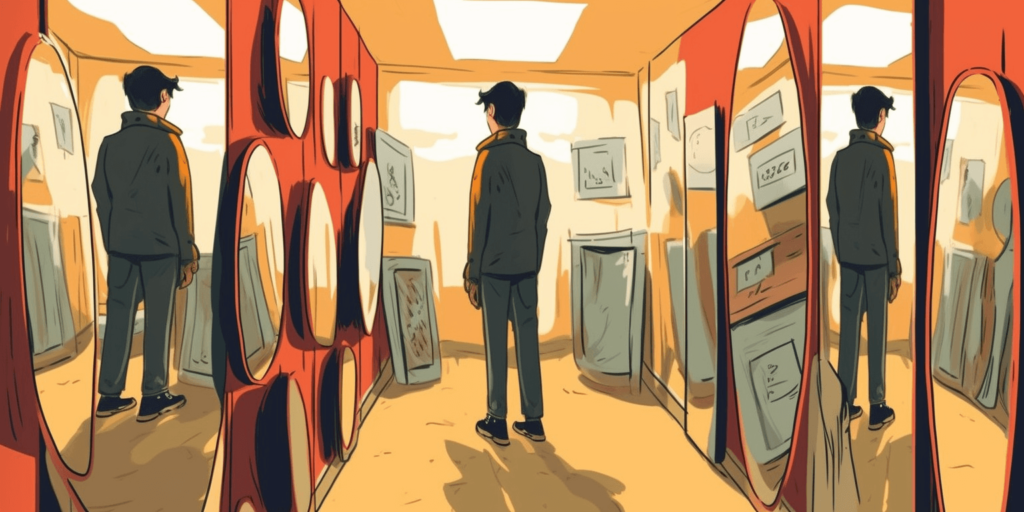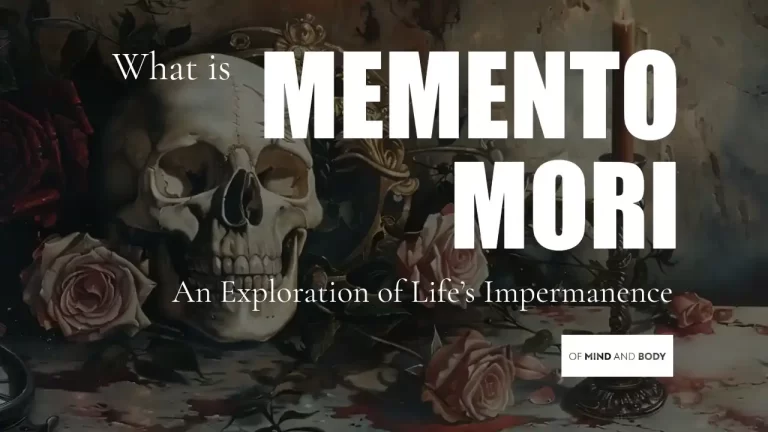
Picture this: you’re in a room filled with mirrors, each reflecting a slightly altered version of yourself. But instead of a physical reflection, these mirrors distort your thoughts, skew your emotions, and cloud your judgement. Welcome to the world of cognitive distortions, where our minds play tricks on us. In this essay, we’ll embark on a journey to unmask these illusions, understand their impact, and discover how we can combat them.
Understanding Cognitive Distortions
To truly comprehend the intricacies of cognitive distortions, we must first define them. Simply put, cognitive distortions are sneaky mental shortcuts, often irrational and illogical, that distort our perception of reality. They emerge from deep-rooted beliefs, biases, and cognitive processes, leading us astray in our thinking.
Now, let’s delve into some of the most common cognitive distortions that plague our minds like unwelcome house guests.
All-or-Nothing Thinking:
Ah, the black-and-white mentality that permeates our thoughts. It’s either all or nothing—no shades of grey in between. This cognitive distortion paints the world in absolutes, leaving no room for nuance or complexity. Imagine a failed attempt at a new hobby. Instead of acknowledging the progress made, all-or-nothing thinking compels us to view it as a complete failure, undermining our motivation and hindering growth.
Overgeneralising:
We’re all prone to making sweeping generalisations based on limited experiences. Overgeneralization takes that tendency to the extreme, drawing broad conclusions from isolated incidents. If you’ve ever thought, “I failed once, so I’ll fail at everything,” congratulations—you’ve fallen victim to this cognitive distortion. By exaggerating the impact of a single setback, we trap ourselves in a self-fulfilling prophecy of defeat.
Mental Filtering:
Imagine wearing a pair of glasses that only allow you to see the negative aspects of your surroundings. That’s mental filtering for you. This distortion selectively filters information, highlighting the unfavourable and disregarding the positive. It’s like attending a fantastic party but obsessing over a single awkward moment, completely disregarding the joy and laughter that filled the evening.
Jumping to Conclusions:
Our minds love to jump ahead, often reaching conclusions without substantial evidence. This distortion manifests in two common ways: mind reading and fortune-telling. Mind reading convinces us that we know what others are thinking, while fortune-telling assumes we can predict future outcomes with unwavering certainty. But alas, we’re not psychic! Yet, these distortions can lead to misunderstandings, strained relationships, and missed opportunities.
Emotional Reasoning:
Who needs logic when we have emotions to guide us, right? Wrong. Emotional reasoning tricks us into believing that our feelings equate to undeniable truths. If we feel incompetent, our distorted mind insists we must be inadequate. Relying solely on emotions as evidence can steer us off course, preventing us from challenging and examining our beliefs objectively.
The Impact of Cognitive Distortions

Now that we’ve shed light on these cognitive culprits, it’s essential to understand their impact on our lives. Cognitive distortions seep into our thoughts, emotions, and behaviours, shaping our overall well-being. They colour our perception, influencing how we interpret events and interact with the world.
Unchecked cognitive distortions can lead to a series of unfortunate consequences. Imagine how all-or-nothing thinking can hinder personal growth or how overgeneralisation can hold us back from seizing new opportunities. Mental filtering may lead to a pessimistic outlook, preventing us from embracing the beauty and positivity that exists. Jumping to conclusions can strain relationships, as we assume the worst about others without giving them a fair chance. Emotional reasoning may sabotage our self-esteem, as we accept fleeting emotions as concrete truths.
Combating Cognitive Distortions
Now that we’ve identified these sneaky culprits, how can we combat cognitive distortions and reclaim our mental clarity? The path to liberation lies in self-awareness and cognitive restructuring.
Self-awareness is key.
By cultivating a mindful and observant mindset, we can catch ourselves in the act of distorting reality. As we become attuned to our thinking patterns, we gain the power to challenge and question our automatic thoughts.
Examining evidence and alternative explanations is another powerful tool. When faced with a cognitive distortion, we can seek objective evidence and alternative perspectives to counteract our skewed beliefs. This process encourages critical thinking and opens the door to new insights and possibilities.
Seeking support is crucial on this journey. Engaging in open conversations, sharing experiences, and seeking guidance from friends, family, or mental health professionals can provide the necessary support and accountability. Techniques like cognitive-behavioural therapy offer practical strategies for unravelling cognitive distortions and rewiring our thought patterns.

Conclusion
As we bid farewell to our distorted reflections in the mirror, we emerge with a newfound understanding of cognitive distortions. These illusions have a profound impact on our lives, but armed with self-awareness and the tools to challenge them, we can regain control.
Remember, we are the architects of our thoughts. By dismantling cognitive distortions, we can foster healthier cognitive lives, make sounder decisions, and nurture more fulfilling relationships. So, let’s embrace the journey of unravelling these mental illusions and embark on a path to clarity and personal growth.
In the words of Christopher Hitchens, “Take the risk of thinking for yourself, much more happiness, truth, beauty, and wisdom will come to you that way.”
It’s time to embrace that risk, bid adieu to cognitive distortions, and welcome a brighter, more lucid existence.



